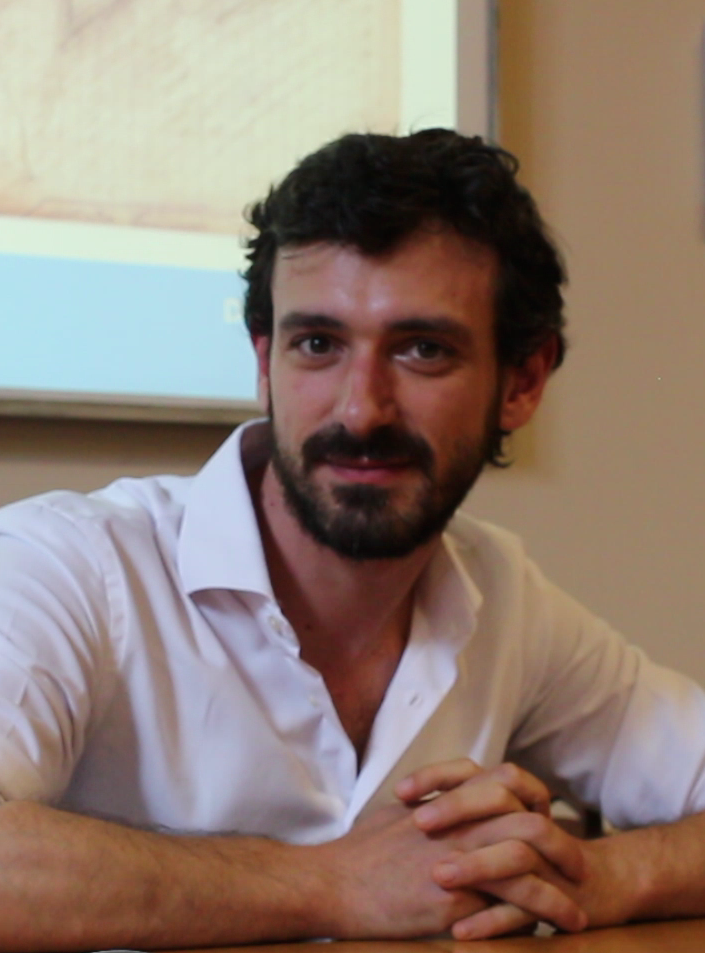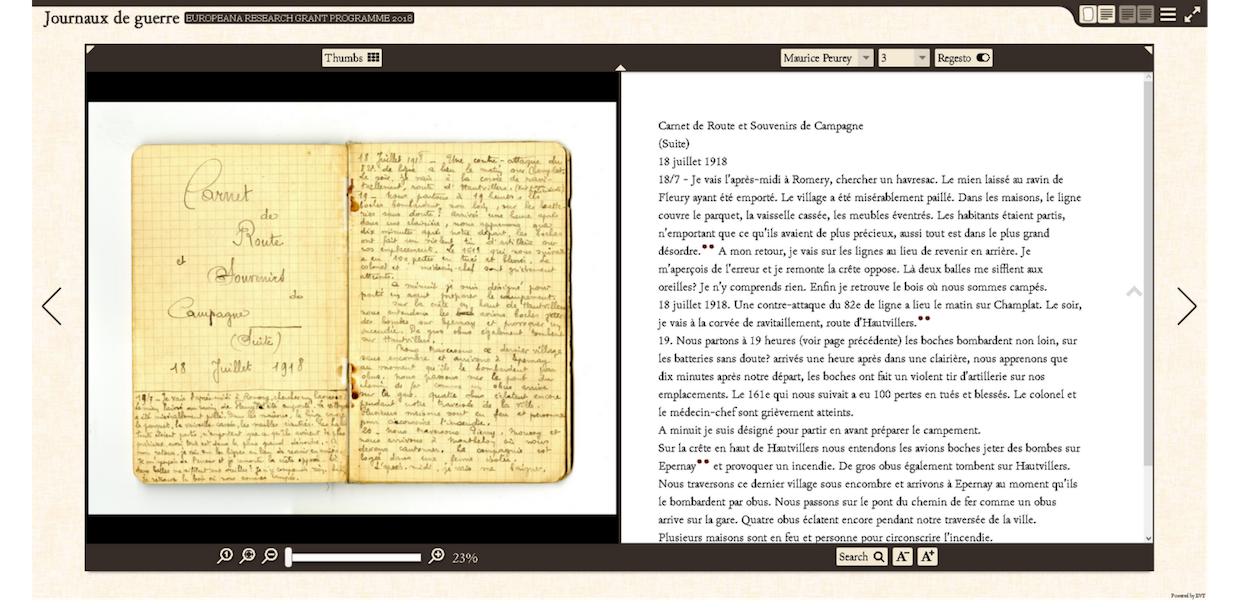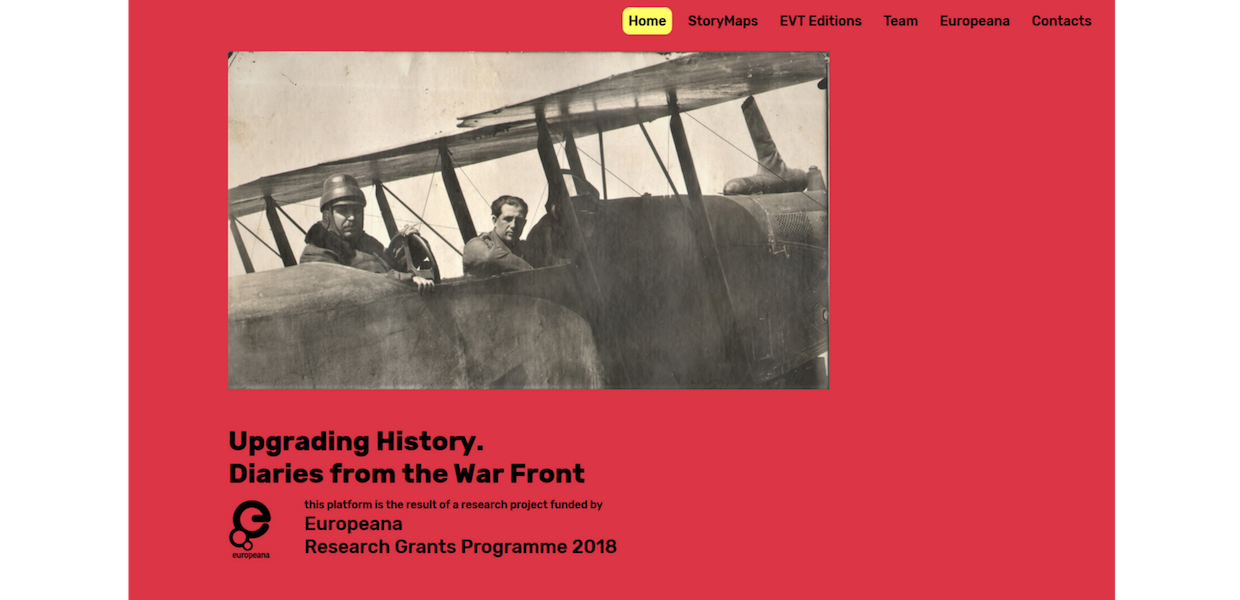In this interview series, we get a glimpse into the researchers’ academic lives, their goals, and the influence of digital cultural heritage on their work. The first grant winner in this series is Dr Saverio Vita, research fellow at the University of Bologna in Italy. His project supported by Europeana resulted in the ‘Upgrading History. Diaries from the War Front’ platform.
What is your current academic position and what is your research focus?

I am a research fellow at the Department of Classic Philology and Italian Studies, University of Bologna. My research mainly focuses on autobiographical writings in war and post-war times. To begin with, I wanted to investigate how emotions like guilt and shame could influence authors who explore the interaction and contradictions between reality and fiction. In order to achieve this goal, I analysed texts such as novels, short stories, diaries, graphic novels and essays written by prisoners of war. Then, I focused mainly on the state of the author between the 19th and 20th centuries. I had the chance to work on a huge digital private collection of letters sent to Olindo Guerrini, the author most representative of the practise of heteronomy in Italy, and I published a monograph on this subject. Currently, I am a member of Centro Studi Laboratorio Guerrini, and the project supported by a Europeana grant was hosted by /DH.ARC (Digital Humanities Advanced Research Centre).
How has Europeana helped you to achieve your research goal?
Receiving the Europeana Research Grant gave me a great chance to build a platform on which any user can access real war diaries, with comments and introductions. Because these deal with memory and since we are living in times in which historical memory is being lost, building such an interface has both an academic and social utility. The Europeana Foundation and its research coordinator really understood this perspective. Additionally, when I had technical and bureaucratic issues during the development of the project, they were constantly available to help me. So, on top of the €8,000 grant, I felt constantly supported by people who really understand what it means to provide a service to the community and to develop a research project.
How did you discover the Europeana Research Grants Programme and why did you decide to apply for it?
My department was awarded for its excellence in Digital Humanities by the Italian Ministry of Education, Universities and Research. During my research activity there, I met Francesca Magrefi, who was responsible for exploring European calls for projects. When I asked if there were opportunities for European funding for my research interests, she immediately sent me the Europeana call. The grant that I won really helped, and gave me the chance to link my past research interests with my various skills towards a single objective. I’ve always thought that one must try to take advantage of past experiences, in order to discover new perspectives. My strong interest in ethical issues about war and my experience in working on digital documents were the perfect background for developing Upgrading History. Diaries from the War Front. I discovered how deep and rich Europeana Collections was, and realised it would be possible to do research on something that could combine my interests with social usefulness.
How does access to digital cultural heritage influence your research?
Researchers who do not take advantage of digital resources nowadays are missing out on a great opportunity. Even when I work on private correspondence, I always check online to see if a digital archive might preserve any documents that could enrich my research, or fill the gap between what I know and what I need to know. In my experience, this was often the case.
When I was working on Olindo Guerrini’s correspondence, I found two letters by Emile Zola and Raniero Paulucci di Calboli. In these letters there were brief allusions to Affaire Dreyfus and Affaire Zola, and in some parts they were written in code. Fortunately, Gallica preserved a huge collection of newspapers, which helped me in retracing the events in order to publish the results.
I think that everyone who works in a research context should know and use the available digital collections. Europeana Collections is a great platform because it not only preserves UGC (user-generated content), but it also works as an aggregator of resources coming from other libraries and institutions, thanks to its CC0 metadata. Europeana Collections is therefore a great platform, for both the general public and academic users.





